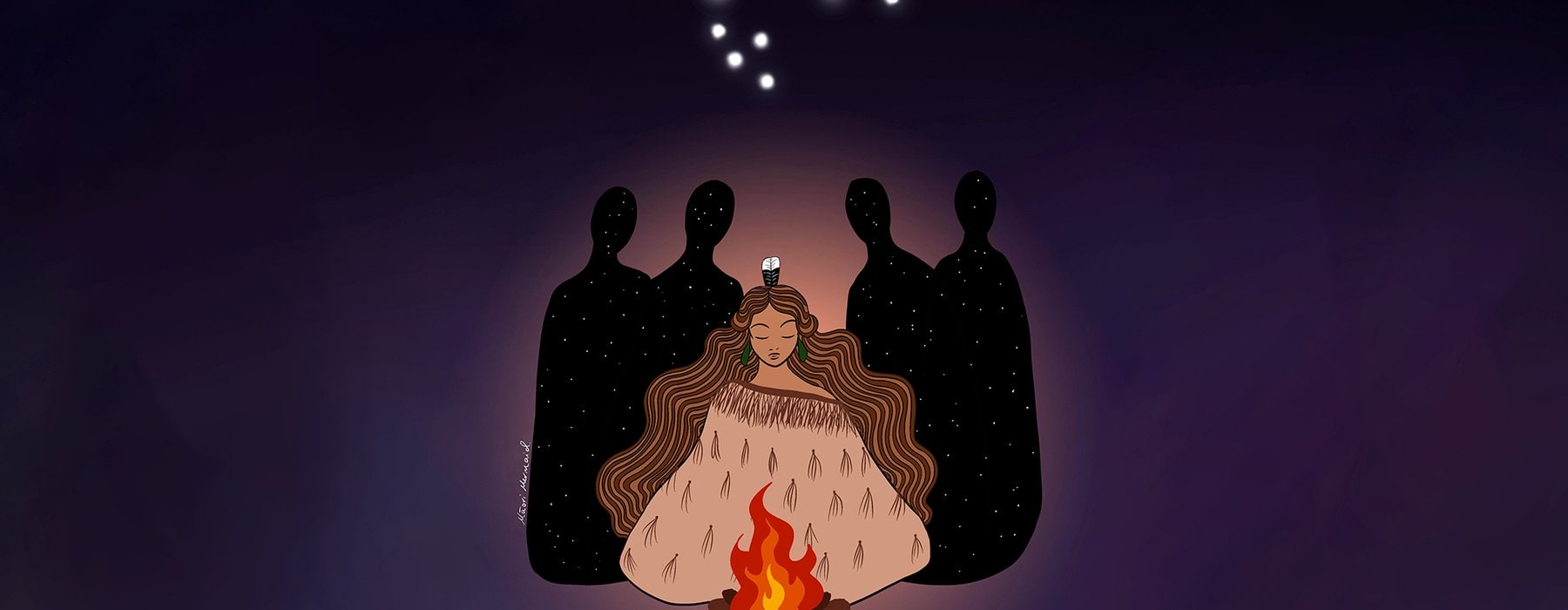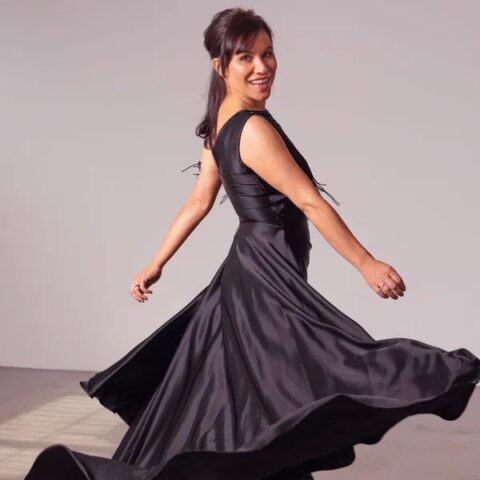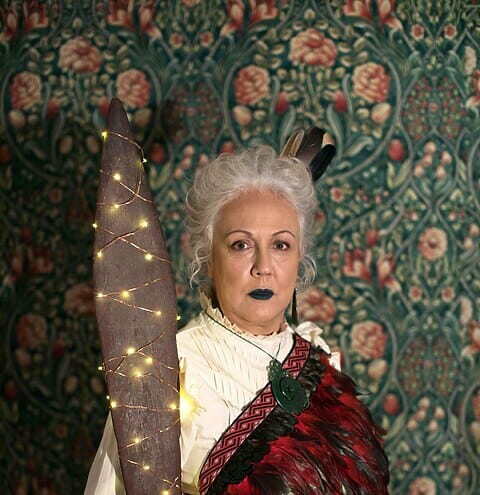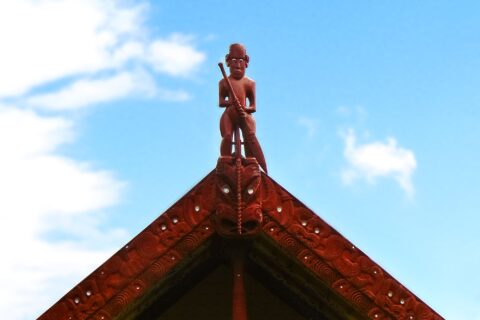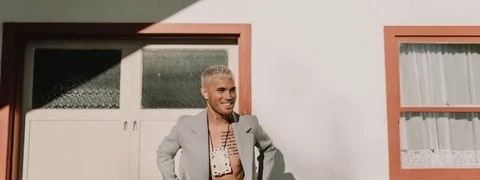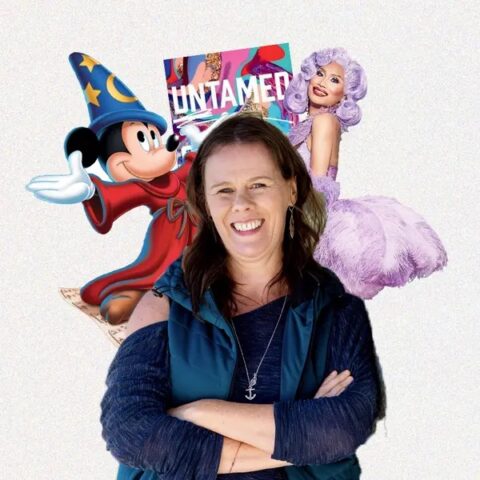She finally feels like she belongs, but that wasn’t always the case for Jess Thompson Carr, aka the Māori Mermaid. Siena Yates finds out more about the artist’s road to reclaiming her identity.
Many cultures around the world and throughout history have recorded tales of mermaids, magical creatures that are half human, half fish, able to live on land and beneath the sea.
In the popular fairy tale, the Little Mermaid is allowed to walk freely among humans on the condition that she relinquish her voice. Magical, powerful, entirely otherworldly, and yet, silenced and suppressed.
It’s that narrative that Māori artist Jess Thompson Carr (Ngāpuhi, Ngāti Ruanui, Ngāruahine), can relate to all too well.
Born and bred in Dunedin, the 25-year-old artist and poet has a degree in English literature and art history and her master’s in Māori ekphrastic poetry (poems written about works of art) from the University of Otago.
Jess has garnered a huge following of more than 28,000 on Instagram as the Māori Mermaid, sharing her art which is based both in te ao Māori and a world of fantasy, depicting everything from mermaids to Ātua Māori (Māori Gods) in an examination of race, culture, colonisation, sexuality, identity, gender and more.
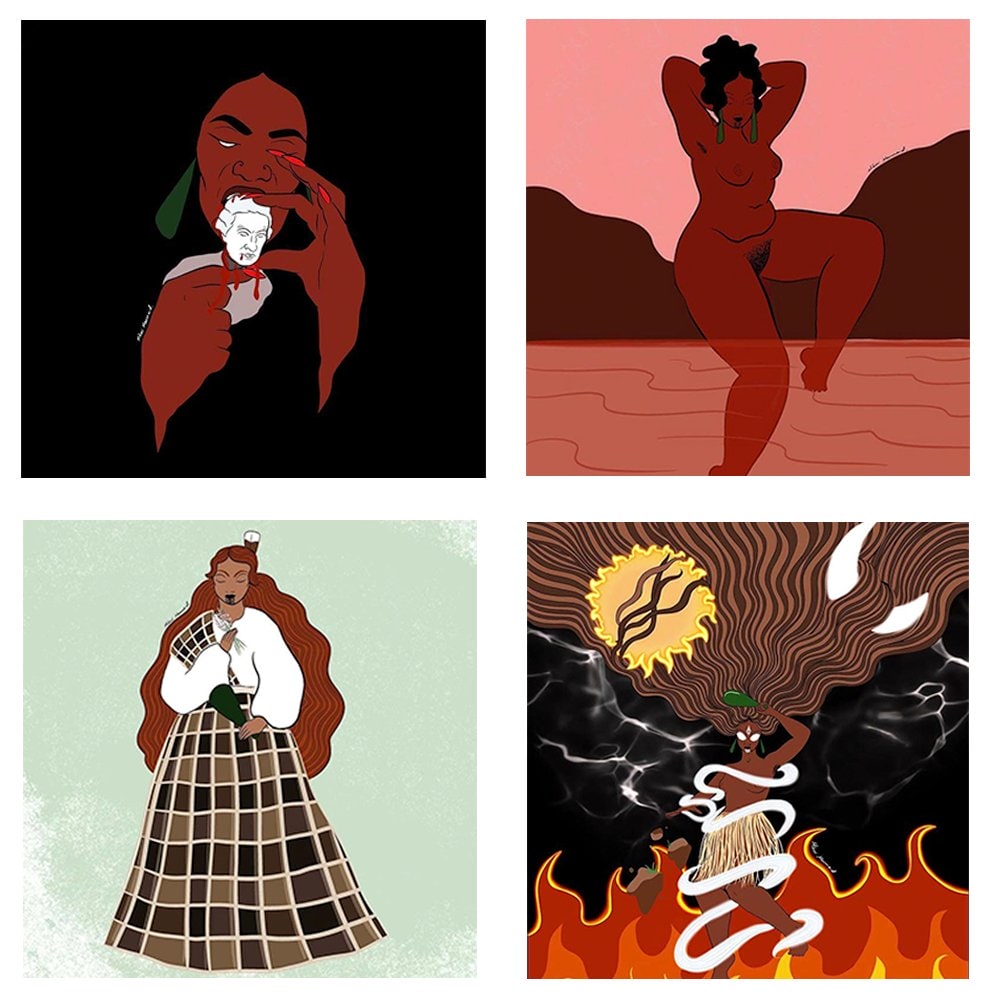
ILLUSTRATIONS BY MĀORI MERMAID
For a self-confessed nerd enamoured with all things fiction and fantasy, Jess says the imagery of mermaids really spoke to her, as she “felt really torn” growing up in te ao Pākehā as someone who is both Māori and Pākehā.
Half the time she would express her identity and be met with doubt.
“I suppose it was always because I didn’t look Māori and often I didn’t act Māori enough – people really expect you to be a certain type of way when you tell them you’re Māori, you know? When I tell people I’m Māori, I’m telling people I’m my mother, I’m my tīpuna, and if people question that, they’re questioning my tīpuna and where I come from, and that hurts.”
The rest of the time, people would accept her as Māori, but then immediately tell her everything that was wrong with Māori and why she shouldn’t be so proud of it.
“It made you feel a bit like something’s wrong with you. You didn’t feel like the beautiful, magical being that you are, so I wanted to change that and say, ‘You are a magical being. You can be part of these two very different cultures and worlds and still be a complete you and still belong and not always feel tormented,’” she says.
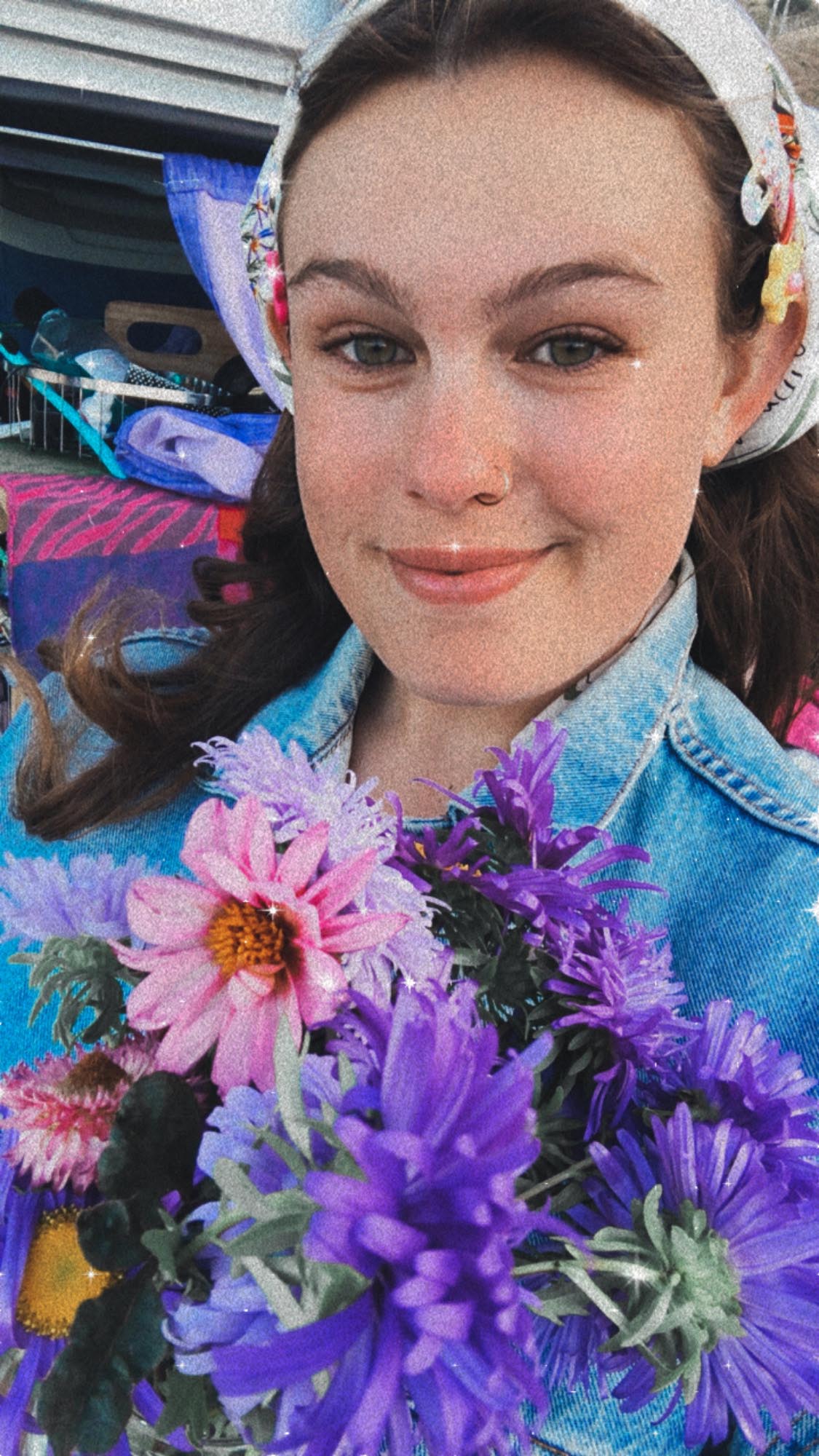
PHOTO SUPPLIED
“I just wanted to get to a point where I could embrace [my identity] and celebrate it without feeling the shame I feel whenever other people hear who I am. That’s why that whole image of being a mermaid and being a part of these two different worlds resonated with me. There’s a majesty and a glamour to it, there’s a bit of fun but also a bit of darkness, a bit of fantasy but it’s still grounded as well. All of these elements that reflect what a very complex being I and so many other Māori people are.”
That whole image of being a mermaid and being a part of these two different worlds resonated with me
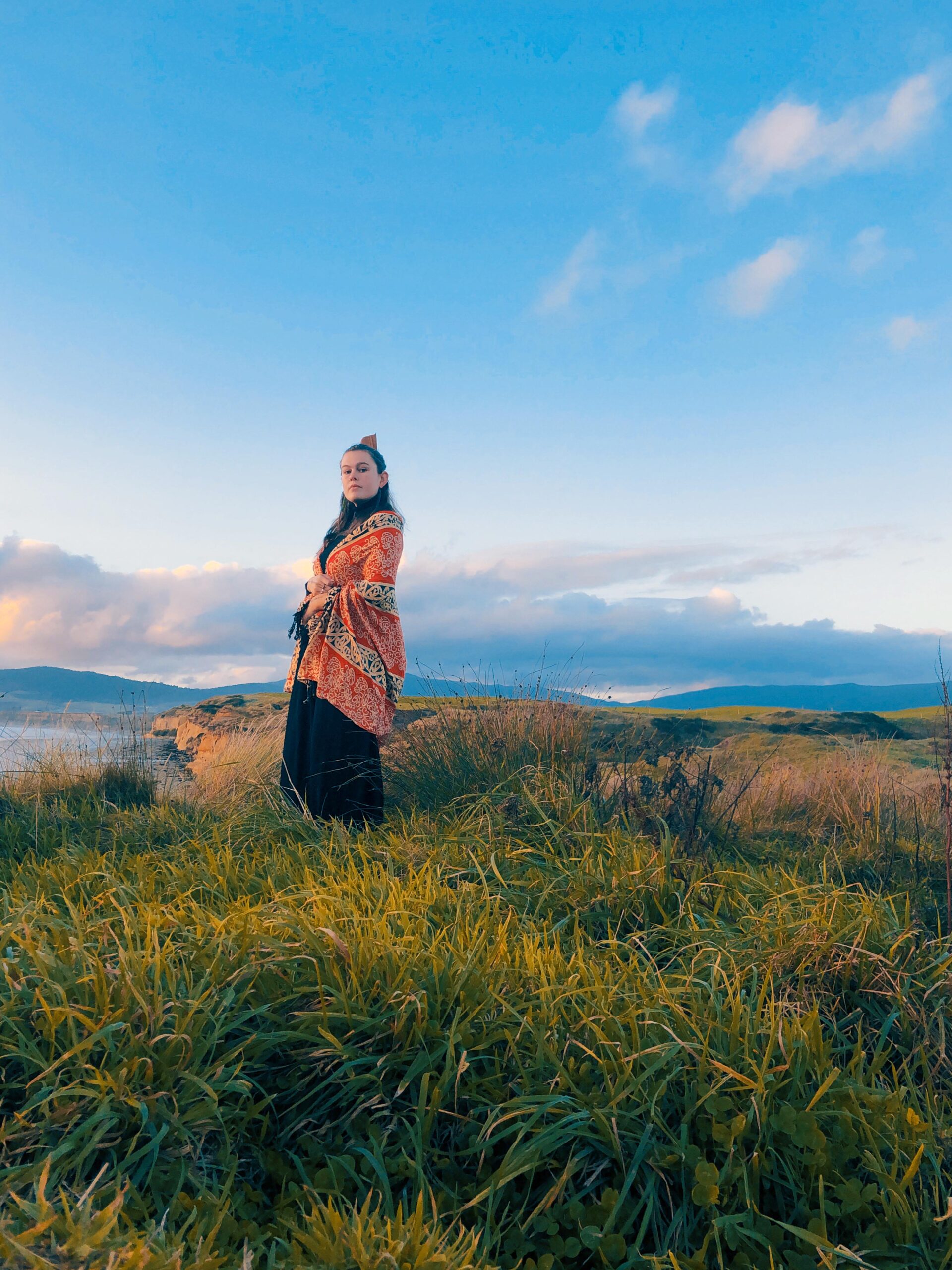
PHOTO SUPPLIED
As well as undergoing this journey through her art, Jess has studied te reo Māori, tikanga Māori and mahi toi (art) at Te Wānanga o Aotearoa and is currently travelling around New Zealand to connect with her whakapapa and papakāinga for the first time.
“We didn’t have our reo and we didn’t have karakia at the table or anything, and it’s stuff like that I’m trying to make up for now so that I can feel like I am reclaiming a bit more for my descendants. Now it’s our moment, and it’s my whānau’s time. I just want things to be different for the next generation.

